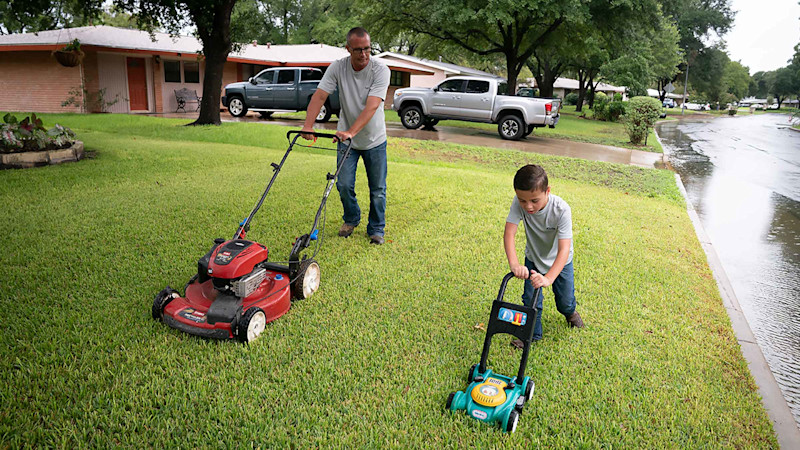
What to Say When There are No Words
Moments in life can render us speechless. We struggle to find words of comfort when life-changing, life-threatening, or traumatic things happen to family, friends, neighbors, or coworkers.
Don't be hard on yourself if you fumble when trying to comfort someone in pain or to say the right thing at the right time. Whether it’s cancer, the loss of a loved one, or another traumatic situation, the best thing you can do is be there for them.
Below, we provide tips on what to say when there are no words. We offer ideas on being there for someone without feeling pressured to say the right thing.
“I hear you.”
If you’re used to giving advice, listening without speaking can be challenging. However, not every situation requires your opinion. If they’re venting about a doctor visit or detailing the grief they’re feeling, try sitting back and letting them release their pain without feedback.
Being listened to can relieve stress, loneliness, and isolation. It builds trust and creates a non-judgmental space. It’s also validating to feel heard and seen. Remember that comforting someone is often most effective when you spend more time listening than providing input at every opportunity.
“I’m so sorry.”
If someone loses a loved one, gets fired, or goes through a breakup, our natural tendency is to say, “I’m so sorry this happened.” When it’s used too much, it can feel like a generic sentiment. However, there’s more power in those words than you realize.
With those simple words, you’re expressing empathy, validation, and support without overdoing it. “I’m so sorry” shows that you’re in tune with someone’s loss or pain, and it acknowledges the situation's injustice.
“How are you doing today?”

Few words express that you care about someone better than, “How are you doing today?” It’s especially true if checking in is the primary purpose of your call or visit. It’s helpful when they’re navigating a new diagnosis or figuring out life after the loss of a loved one.
The key here is to ask them how they are doing at this moment. Life can change dramatically day-to-day or even hour-by-hour when someone is on a health journey or is experiencing loss or other trauma, so it’s often helpful to focus on the present moment.
Plus, whether you’re speaking to the person who is on their own personal health journey or you’re speaking to a family caregiver, you can use their response to determine what kind of support you can provide for them.
“I am at a loss for words – I want to be present, let you feel, and hold space for you.”
Acknowledging that you don’t know what to say can show that you want to be there for them but aren’t sure how. Being present and giving the other person space shows them you genuinely desire to provide emotional support.
This can be particularly helpful in high-emotion situations where they are feeling a whirlwind of emotions. You’re opening the floodgates and allowing them to feel and express their feelings how they want.
Note that it can be unhelpful to just say that you don’t know what to say. Without also offering a listening ear, this statement may make the other person feel obligated to provide comfort or hide their true emotions to avoid feeling burdensome. Be sure to still provide comfort, and make it clear that it is not their responsibility to manage your feelings.
“I am thinking of you and your family.”

Stress, loss, and trauma often affect entire families. Illness or the loss of a loved one can have ripple effects, from those closest to the person out to their parents, children, and siblings.
Telling someone that you’re thinking not only of them but also of their family shows that you understand the gravity of the situation. You’re expressing that you care about them and the people they care about.
“I am here with you.”
When someone is going through cancer, loss, or a new health journey, the people around them may feel uncomfortable or afraid. As a result, they may not reach out to the hurting person.
It’s not that people don’t care. Instead, they say nothing instead of risking saying the wrong thing.
However, being present or available for someone tells them everything they need to know. Showing up can speak volumes where words fail. Simply being present and acknowledging the situation can be helpful.
“I am going to the grocery store later today, what can I bring you? I am here to help.”
Listening or being present shows someone you care. However, some people may also need practical assistance you can offer. Don’t be vague; tell them specific tasks you’re willing to do.
Grocery shopping is just one example. Offer to walk the dog, take out the trash, watch their kids, or do any other small task that can ease their burden. If you’re not local, then you can send food delivery gift cards or offer to coordinate support from afar.
A person who’s processing their emotions and trying to navigate their situation may not take you up on your offer right away. However, they may respond a few days later. Check back with them regularly, and be open and ready to act when they reach out.
Tips for the conversation & other ways to help
Being there for someone means so much more than just saying you’re sorry or that you’re there for them. Show them through your actions too.
Follow their lead.
Give the person space to talk, but don’t force it. Pressuring someone to talk when they’re not ready rarely has the desired result. It can backfire. Instead, let them set the tone and determine the direction of the conversation.
Follow through on any promises you make.

If you promise to offer your support, be sure to follow through with it. If you don’t, you’ll likely lose the person’s trust. Avoid making commitments when emotions are running high.
Once you’ve made a promise, it may help to set reminders for yourself. For example, many smartphones allow you to set up notifications that prompt you to execute a task (like buying their groceries or sending a text). You can also write in a planner, try sticky notes or use whatever else helps you.
Importantly, make sure that you commit to supporting them in ways that are realistic for you. This way, you can follow through without spreading yourself too thin or breaking a promise.
If in person, be mindful of your facial expressions & body language.
Closed body language, like crossed arms, can show your discomfort, making your loved one feel like they shouldn’t share their feelings. Instead, have a gentle, concerned facial expression to show empathy and attentiveness. Keep your body relaxed, and lean in slightly to show you're engaged and care about what the person is saying.
Be present during the conversation.
When possible, remove all distractions that hinder you from focusing on the person in front of you. Put the pets in another room. Keep children busy. Turn off your TV, and put the phone away. Meet with the person when you’re not busy or in a rush. Give them plenty of space and stay present mentally and physically.
Know that they may not respond how you expect them to.
When a hurting person rejects your offer of help or reacts negatively to your support, it may have nothing to do with you. Don’t take it personally. Sometimes, the best you can do is give them space.
Offer specific support.
If you ask someone what you can do, you put the burden on them to provide a solution to their problem. Instead, specify some ways in which you’re willing to help.
For instance, creating a CaringBridge could be a way to offer support in the moment and on an ongoing basis. This no-cost online health platform also lets you coordinate care, share important communications, and provide emotional support. It’s a practical option that can ease some of their burden.
What advice would you share?
Showing someone you care involves showing up, giving them space, and empathizing with their situation—things that words alone can never express.
What advice would you share for someone who doesn’t know what to say when there are no words? What experiences have helped you help someone else? Leave your stories and tips below.